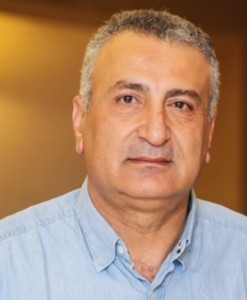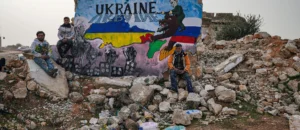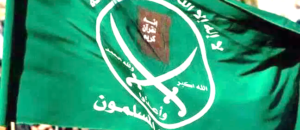Dr. Kamal al-Labwani
The situation in Syria is tragic and getting worse. Chaos, extremism, and a lack of security are taking root all over the region, which is further threatened by severe civil and sectarian wars. In light of this grim situation, we cannot stand idly by. We cannot wait for the worst to happen, or wait for an international solution. It seems naïve to dream that an effective central government will emerge as soon as the Geneva Conference convenes. It should be expected that the international solution will fail as usual; that a sort of failed state and disintegration will occur; that “security pockets” and sectarian-based emirates will be established in Syria; and that they will expand and establish connections with their counterparts in the region.
In order to contain this worsening reality, I propose the following measures:
– It is neither moral nor realistic to hope that Assad and his allies will prevail after all that they have done, and his regime should not be assisted. It is unacceptable to the Syrian people and its neighbors that extremist Sunni and Shiite groups, among others, should spread to Southern Syria as they did in the North. Southern Syria is somewhat distinct from the rest of the country in terms of the character of its society. Forces there are still less extreme and the nature of the inhabitants and their conditions are somewhat different.
– The choice between a regime that has turned into criminal gangs and a fractious, extremist opposition is an impossible one. Active intervention is necessary to support the moderate, harmonious, stable, and competent opposition that exists, at least in the South. (By the South, we mean Damascus and its countryside adjacent to the Jordanian border).
– If a rapid change in the situation occurs and there is large population and real support for moderate forces, it could be possible to guarantee that extremist forces will not spread to this Southern region. This would thereby ensure stability and peace with neighboring countries, which should quickly engage in economic cooperation.
Such initiatives may seem difficult or unlikely, but it is in the strategic interest of the certain regional actors to cooperate to achieve these goals. The following stakeholders can and must act for the sake of this mutually beneficial cause:
The role of Israel
– It is illogical for Israel to think that it is isolated from its neighbors. The peace process and the war are linked.
– The Syrian people believe that Assad is in power because Israel backs him, so they direct their resentment both against him and against Israel and consider Israel to be a partner and even a cause of their suffering. Changing this perception requires a clear, practical position from Israel that would alter the Syrian people’s sensitivities in this regard. This would increase the chances of achieving peace and stability in the region.
– Most armed forces on the ground no longer have any objection to cooperation with Israel now that they have seen the savagery of the regime, Iran and their gangs, and the international community has abandoned them.
– Israel could play a role in helping by imposing a de facto no-fly zone – whether explicitly announced or not – starting at 100 kilometers and then extended according to developments (the justification being that it would prevent Assad from killing his own people).
– Israel could replicate its experience in South Lebanon in South Syria. This time, however, it could be successful, as Israel could protect civilians and support the majority rather than playing the role of an occupier backing a minority, as was the case in Lebanon.
– Israel could offer air support and humanitarian assistance for refugees, and social connections could be opened up within Israel to end the state of hostility and fear. To start with, the Golan could be used as a peace zone for inhabitants of the war-stricken region to become acquainted.
The role of Druze and other groups
– The role of the Druze in Southern Syria, the Golan, and Lebanon could be more effective, and their unity and distinct identity could create a role for them as intermediaries between communities in the region.
– The liberation of Suwayda and the Druze areas could be facilitated and they could be handed over to local Druze forces in cooperation with their region to play a role in securing it.
– Changing the stance of the Druze in Suwayda would change the equation in the area south of Damascus and help liberate it. It would also prevent Hezbollah from establishing a security “pockets” there. More importantly, a change would occur in Lebanon, as Hezbollah would lose its majority if the Druze in Lebanon changed their position along with their brethren in Syria.
– A Sunni-Druze alliance should be promoted in the region and established through practical measures.
– As many Syrian refugees as possible should be reintroduced to Syria from Jordan, or their residence should be moved to liberated areas with protected skies.
The role of regional countries
– A free Damascus could have a major impact on the general trend of the situation in the whole of Syria, and could help bring it under the control of a moderate central government. This would undermine the role of Iran and Hezbollah, and extremists as well.
– Turkey could undertake a parallel operation against the Aleppo—Idlib—Hama axis. The success of such an operation does not require an international resolution or active intervention.
– Regional forces could cooperate without any external influence or intervention, which has only been destructive and has caused problems.
– These forces could be used in security and military arrangements to ensure that the desired results will be achieved.
– If such cooperation takes place, the peace process will be easier once the situation stabilizes. This will ensure that communities will open up in short order and there will be communal and economic engagement, as well as joint security.
– Steps to implement these principles can be discussed in detail, along with the necessary confidence-building measures – first through an intermediary, then gradually with actors on the ground in the region directly.





